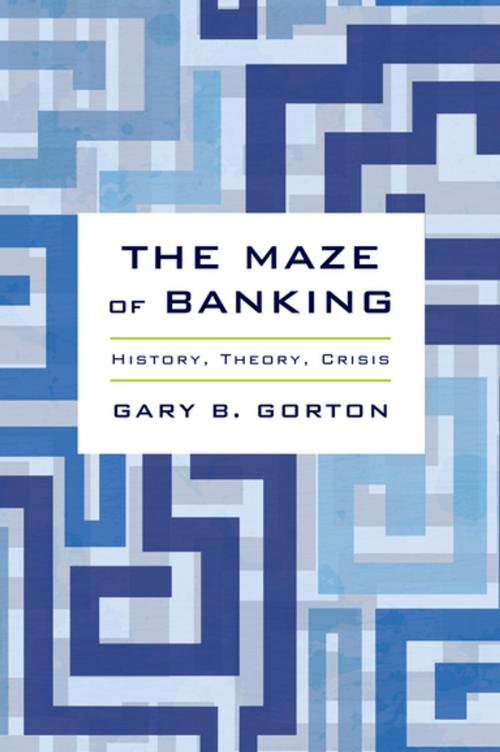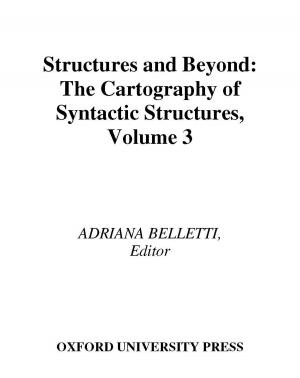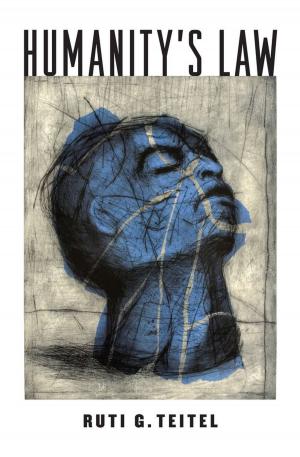The Maze of Banking
History, Theory, Crisis
Business & Finance, Finance & Investing, Banks & Banking, Economics, Economic History, Finance| Author: | Gary B. Gorton | ISBN: | 9780190204853 |
| Publisher: | Oxford University Press | Publication: | March 3, 2015 |
| Imprint: | Oxford University Press | Language: | English |
| Author: | Gary B. Gorton |
| ISBN: | 9780190204853 |
| Publisher: | Oxford University Press |
| Publication: | March 3, 2015 |
| Imprint: | Oxford University Press |
| Language: | English |
After the financial crisis of 2007-2008, analysts continue to question the security of banking sectors in nations in Europe, Latin America, Asia, and Africa. Why do such crises recur? What is it about the accumulation of bank debt that potentially jeopardizes national and global banking systems? There is no one better-equipped to answer such questions than Gary Gorton, who has been studying financial crises since his PhD thesis in 1983. The Maze of Banking contains a collection of his academic papers on the subjects of banks, banking, and financial crises. The papers in this volume span almost 175 years of U.S. banking history, from pre-U.S. Civil War private bank notes issued during the U.S. Free Banking Era (1837-1863), followed by the U.S. National Banking Era (1863-1914) before there was a central bank, through loan sales, securitization, and the financial crisis of 2007-2008. Banking changed profoundly during these 175 years, yet it did not change in fundamental ways. The forms of money changed, resulting in associated changes in the information structure of the economy. Bank debt evolved as an instrument for storing value, smoothing consumption, and transactions, but its fundamental nature did not change. In all its forms, it is vulnerable to bank runs without government intervention. Comprehensive and informative, the collection is the definitive volume on the history of the U.S. banking system. These papers provide the framework for understanding how the financial crisis of 2007-2008 developed and steps to promote a stable banking industry, thereby preventing future economic crises. The Maze of Banking is essential reading material for students and academics with an interest in economics, finance, and the history of banking.
After the financial crisis of 2007-2008, analysts continue to question the security of banking sectors in nations in Europe, Latin America, Asia, and Africa. Why do such crises recur? What is it about the accumulation of bank debt that potentially jeopardizes national and global banking systems? There is no one better-equipped to answer such questions than Gary Gorton, who has been studying financial crises since his PhD thesis in 1983. The Maze of Banking contains a collection of his academic papers on the subjects of banks, banking, and financial crises. The papers in this volume span almost 175 years of U.S. banking history, from pre-U.S. Civil War private bank notes issued during the U.S. Free Banking Era (1837-1863), followed by the U.S. National Banking Era (1863-1914) before there was a central bank, through loan sales, securitization, and the financial crisis of 2007-2008. Banking changed profoundly during these 175 years, yet it did not change in fundamental ways. The forms of money changed, resulting in associated changes in the information structure of the economy. Bank debt evolved as an instrument for storing value, smoothing consumption, and transactions, but its fundamental nature did not change. In all its forms, it is vulnerable to bank runs without government intervention. Comprehensive and informative, the collection is the definitive volume on the history of the U.S. banking system. These papers provide the framework for understanding how the financial crisis of 2007-2008 developed and steps to promote a stable banking industry, thereby preventing future economic crises. The Maze of Banking is essential reading material for students and academics with an interest in economics, finance, and the history of banking.















